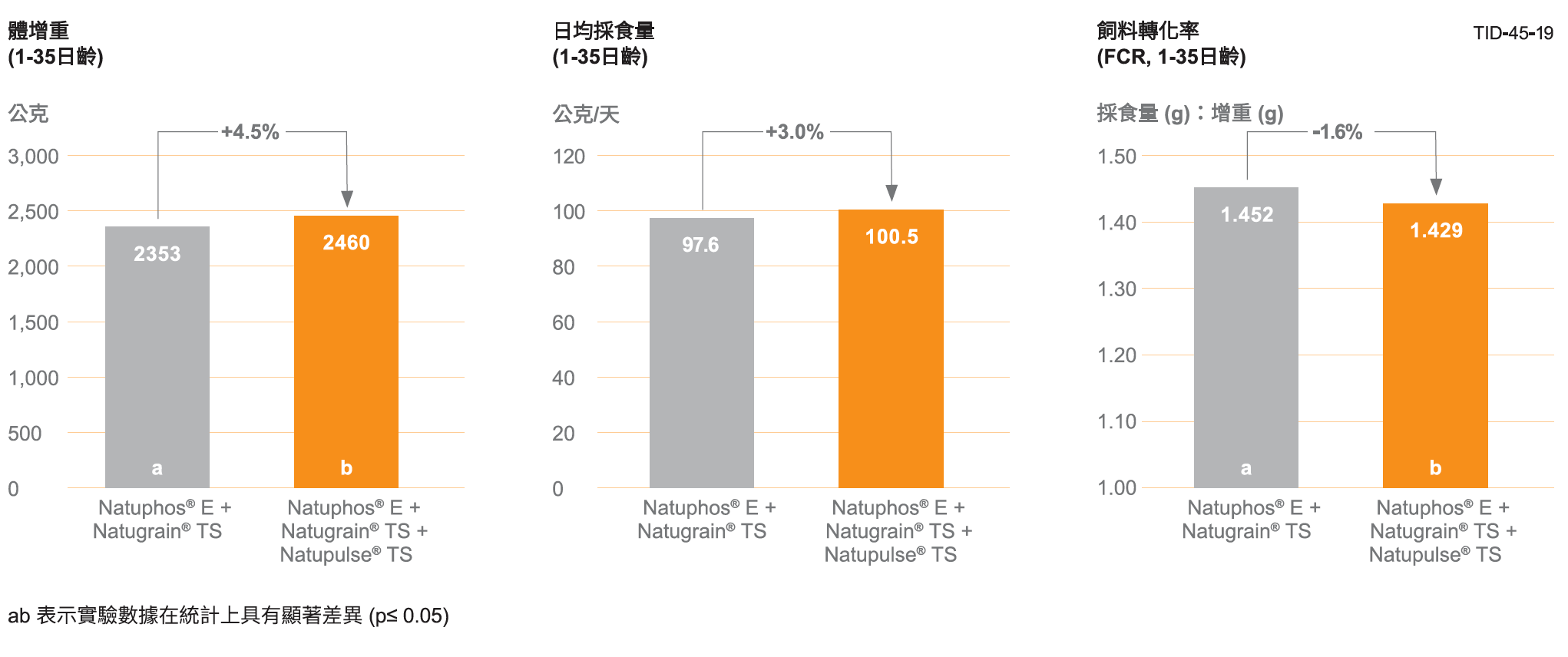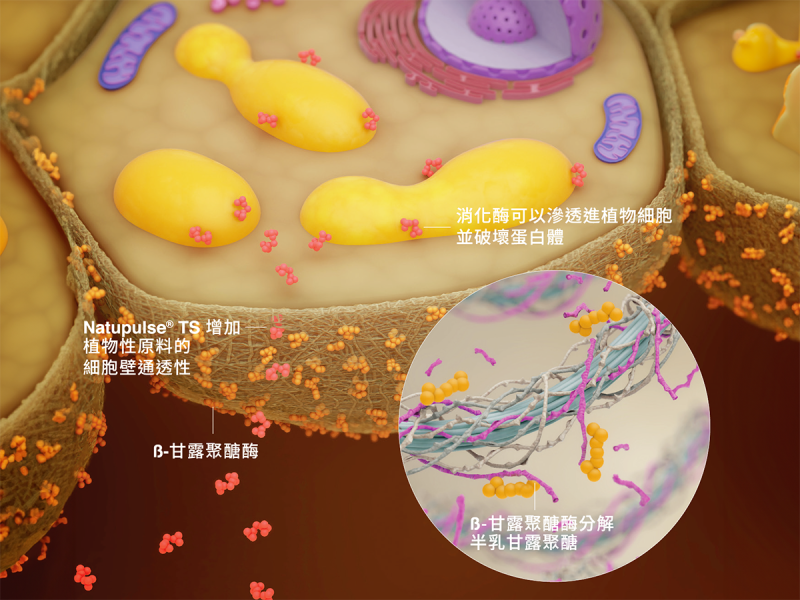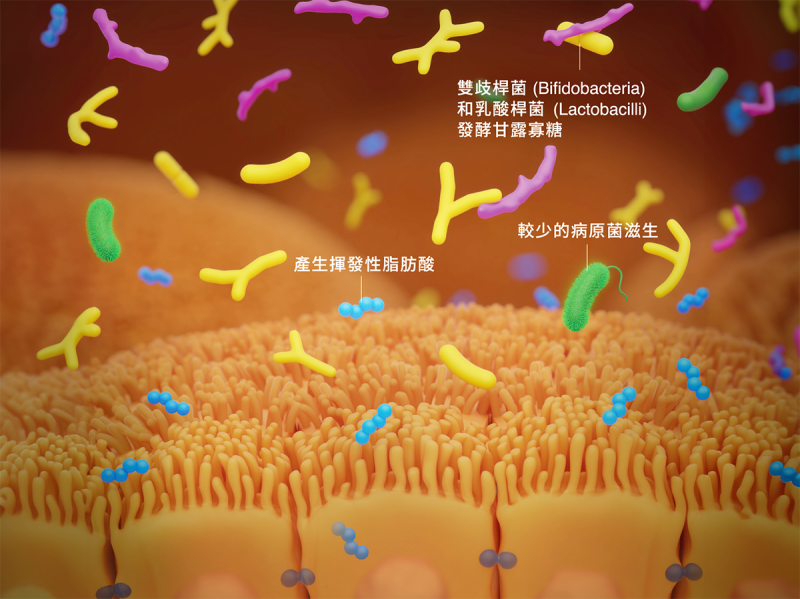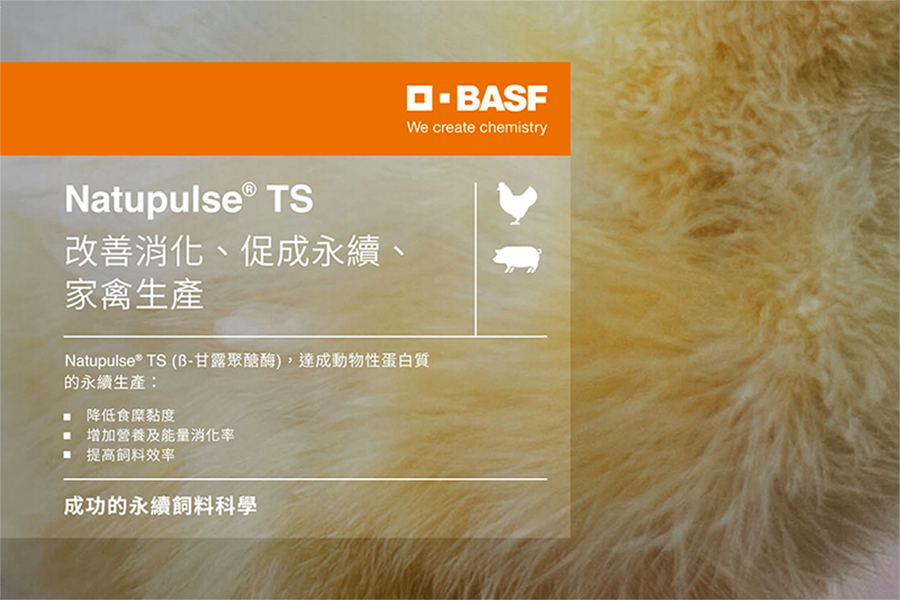
β-mannan is a natural polysaccharide present in many plant cell walls, consisting mainly of mannose units, found in legumes, seeds, and some algae and fungi. They mainly serve as structural elements, helping to maintain the integrity and elasticity of plant cell walls. In monogastric animals, such as poultry and pigs, β-mannan has anti-nutritional properties as it has the resistance by the animal's digestive system.
β-mannanase is an enzyme specifically designed to break down these polysaccharides, lessening the anti-nutritional effects, relieving the burden on the digestive system, and enhancing more efficient nutrient absorption. The energy value of the feed can be dramatically elevated; the animal growth performance and the overall health status can be improved as it is added to feed.
| Manufacturer |
BASF
|
| Origin |
Germany
|
| Ingredient |
β-mannan 8000 TMU/g
|
| How to use |
Add 100g per ton of feed and use under pelleting conditions below 90°C.
|
| Expiry Date |
Store unopened for 24 months
|
I am interested in this product.
Please contact me.
Watch video to learn more
Negative impacts of anti-nutritional factors
Feed accounts for 70% of the total production cost for broiler chickens; yet, up to 30% of the nutrients stay undigested.
Non-starch polysaccharides (NSPs) form the majority of the fibrous structure in plant cell walls and are complex carbohydrates. The presence of NSPs is a crucial reason for the difficulty in digesting feed; NSPs are considered anti-nutritional factors in broiler feed, for it lacks the endogenous enzymes to digest these compounds.
NSPs is commonly in soybean meal, known as galactomannans (a type of β-mannan), serving as storage and structural polysaccharides in soybean meal. Soybean meal is the main protein source in commercial broiler diets in Taiwan, providing a significant amount of β-mannan.
Yet, the concentration of β-mannan in soybean meal varies greatly.
Soluble β-mannan increase digesta viscosity, and thus reducing animal production performance. Increased digesta viscosity leads to:
1. Reduced nutrient uptake2. Lower energy and feed digestibility
3. Conducive to the growth of pathogens (such as E. coli)
Anti-nutritional factors, such as β-mannan in the diet, can reduce the profitability and competitiveness of poultry production.
Positive Effects of Adding β-mannanase to Poultry Feed
Adding β-mannanase to poultry feed reduces digesta viscosity,
thereby improving feed digestibility,
which helps animals in a positive way.
Our study shows that Natupluse® TS can reduce the digesta viscosity of feeds consisting of various feed ingredients after entering the animal's gastrointestinal tract.
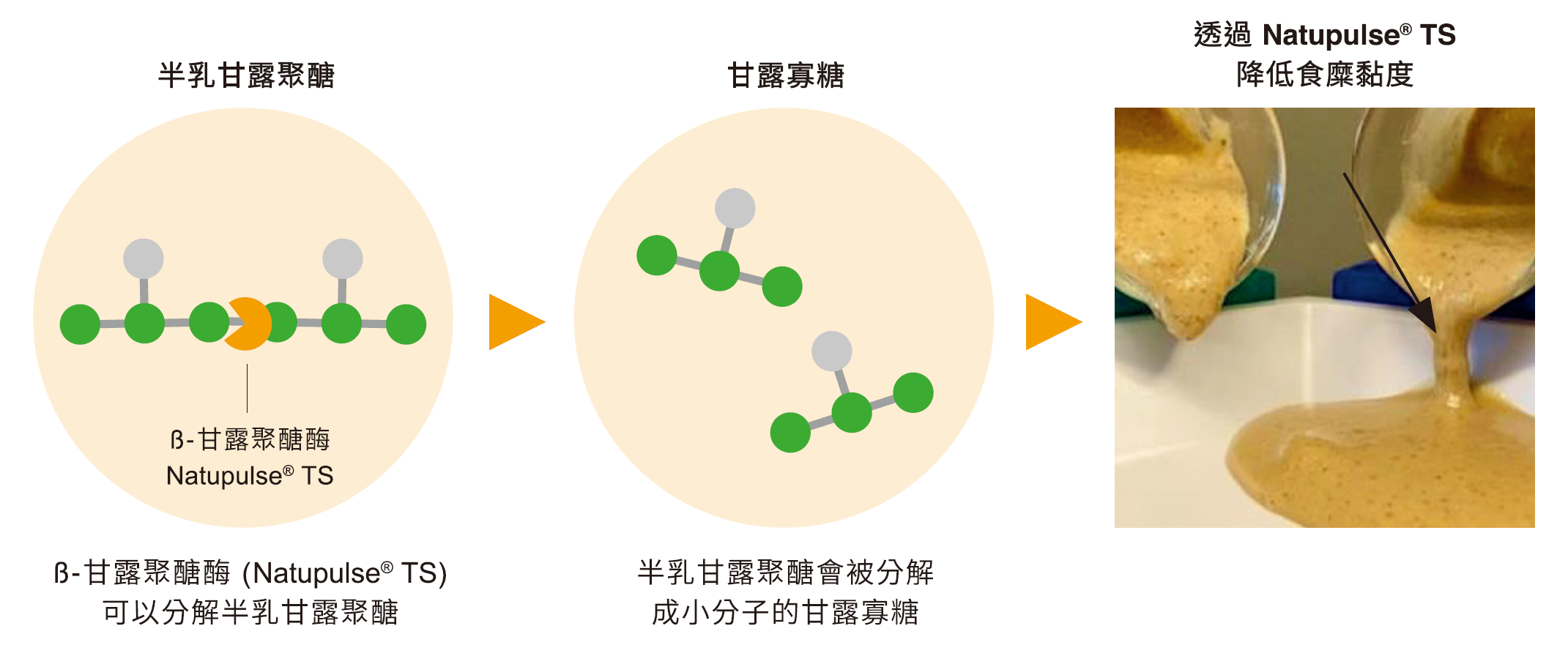
Natupulse®Natupluse® TS's Active pH Range Aligns with Poultry Gastrointestinal Tract
Natupluse®® TS shows higher activity in the lower pH ranges and is active in the upper digestive tract. Acting in the upper digestive tract can minimize the negative effects of β-mannan.

Adding Natupluse®® TS notably reduces ileal digesta viscosity,
and enhances apparent metabolizable energy in broiler feed.
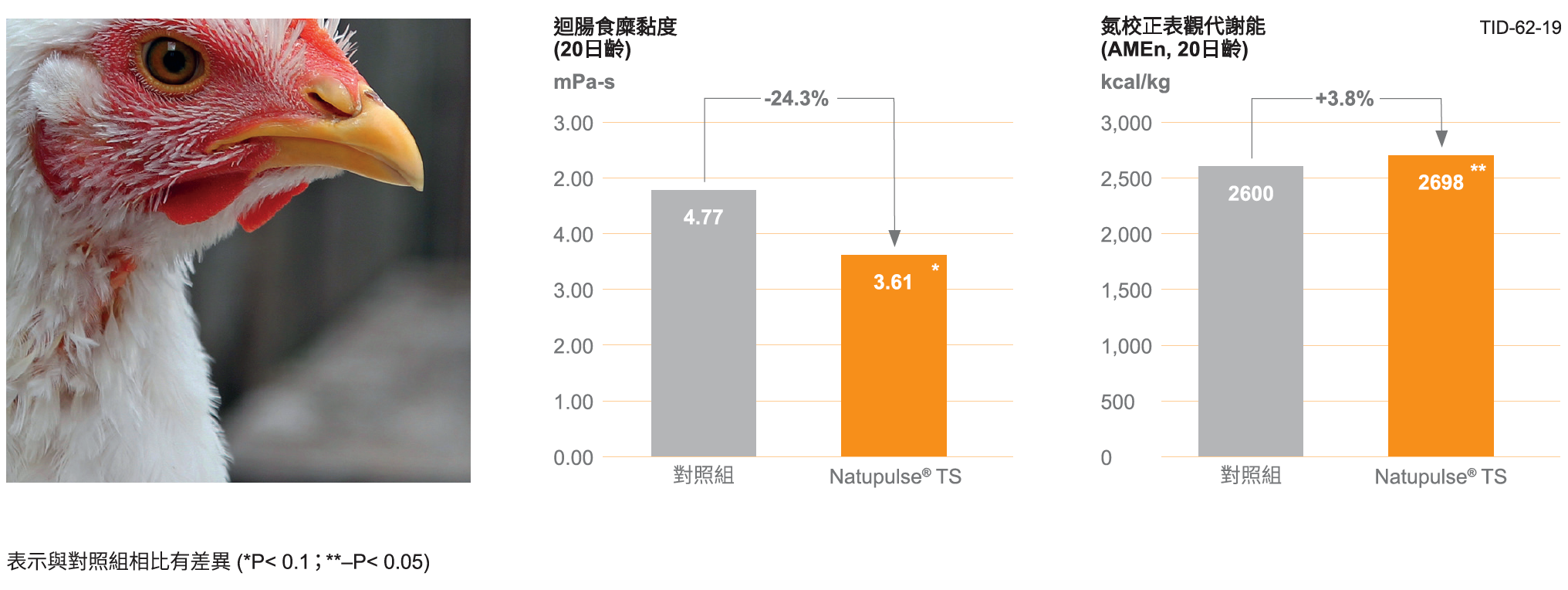
It can improve digestibility of corn-based diets, positively affecting animals.
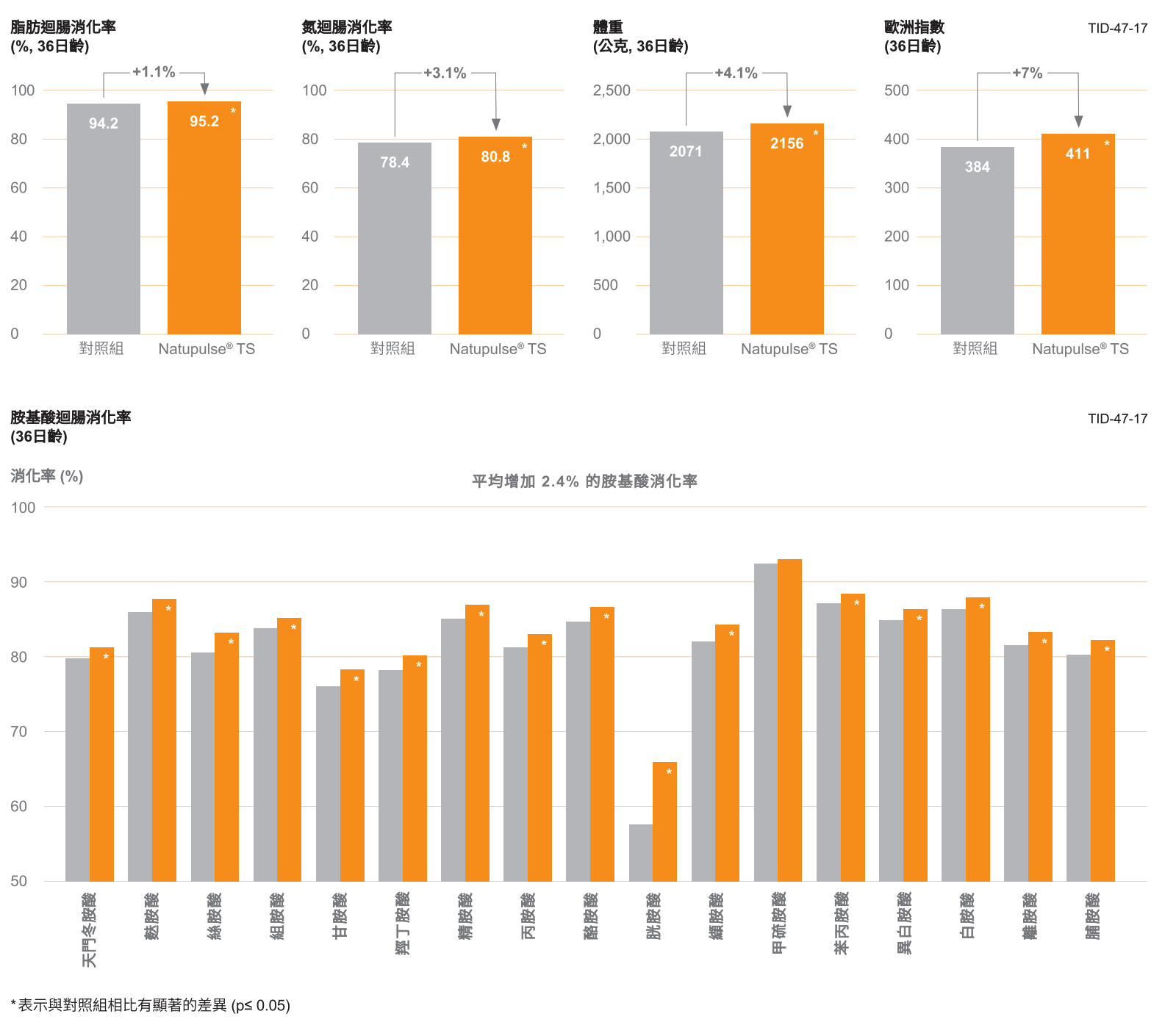
Use Natupulse® TS, Natuphos® E, and Natugrain® TS simultaneously can effectively improve broiler feed utilization.

Most commercial broiler diets already contain combinations of enzymes, such as phytase, xylanase, or glucanase. ®When using these enzymes simultaneously, Natuphos® TS can still provide an additional advantage.
